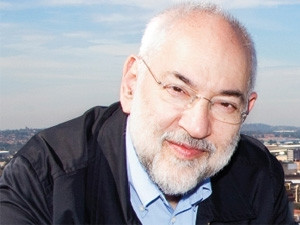
While Gartner in its 'Top Ten Strategic Technology Trends for 2016' says the year will be all about the Internet of things (IOT) and smart devices talking to each other, the theme really should be the Internet of everything (IOE).
So says professor Barry Dwolatzky, director of the Joburg Centre for Software Engineering, who believes that while the hype continues around IOT, including big data, cloud and artificial intelligence (AI), this year the Internet of everything will mature.
Cisco says as the evolution of the Internet suggests, the Internet of everything has four pillars - people, process, data, and things - and it builds on top of the IOT pillar - things. The Internet of everything further advances the power of the Internet to improve business and industry outcomes, and ultimately make people's lives better by adding to the progress of IOT.
In a recent global report, Research and Markets says the adoption of IOE is in nascent stage but growing rapidly.
"I fully expect to see a level of maturity reached within these technologies, with significant application during 2016. We should see some solid impact from big data and AI as a result of the hype over the past two years," says Dwolatzky.
The challenge, according to Dwolatzky, is figuring out how to use the information that all the devices and associated technology would produce: "While there are huge possibilities, the challenges are almost as big."
According to Gartner, by 2020, 25 billion devices will be generating data about almost every topic imaginable. This is equal parts opportunity and challenge, says Dwolatzky, adding there will be a plethora of data, but making sense of it will be the trick. Those companies that harness the power of this tidal wave of information will leapfrog competitors in the process, he points out.
"While South Africa does lag behind international markets' adoption curves, I fully expect to realise some benefits in 2016. We should see results from AI and big data, in fact so much so, there should be real disruption that challenges traditional industries to either reinvent or shut their doors," says Dwolatzky.
In five or 10 years, we will be living in a different world, he notes, but in 2016, it should really be the Internet of everything.
"However, one thing that won't change is that we will always need good quality software. While how we use it will change dramatically, the basic need for world-class software that is handcrafted will always be relevant," concludes Dwolatzky.
Share